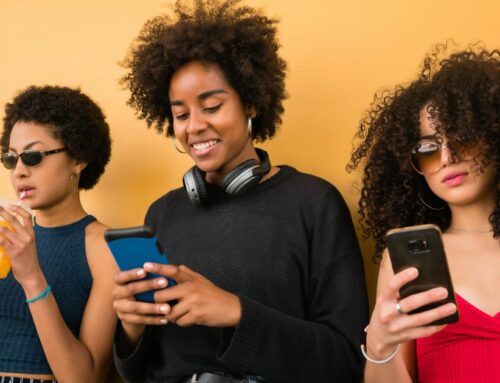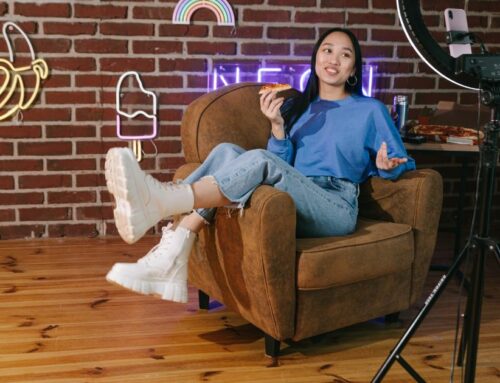• Americans are most likely to go to work in-person, if possible, and shop in-person for non-essential items, in the coming weeks and months. By contrast, only a quarter or fewer Americans are likely to take a flight or take a taxi, Uber, or Lyft.
• Although there is some uncertainty around what it would take for people to be more likely to undertake certain activities in the coming months, having strict cleaning procedures, having a sustained period of no new cases of COVID-19 in their state, strict social distancing, and having a vaccine available are all themes of importance.
August 31, 2020
LIKELIHOOD OF UNDERTAKING KEY ACTIVITIES IN THE COMING WEEKS AND MONTHS
Given the impact COVID-19 has had on routine in-person activities, Americans were asked their likelihood of undertaking a series of activities in the coming weeks and months, if possible. Results show that residents are generally not likely to go out for many activities. Nearly half would go to work in-person (46%), while a similar four in ten indicated they would be likely to visit the dentist for a routine cleaning/ procedure (41%), one-quarter would send their children to school (25%), and one-quarter would visit a physiotherapist or chiropractor (23%). Americans indicated that given the opportunity, they would be less likely to take a flight (20%) or take a taxi/Uber/Lyft (19%).
Perhaps not surprisingly, likelihood of going to work is higher among those under the age of 55, while it is also elevated among those that earn more each year, and those who have higher education. The same is true for activities like visiting a dentist, as those with higher incomes and education are more likely to partake. Across regions, residents are fairly consistent in their opinions on likelihood of undertaking activities.
WHAT IT WOULD TAKE TO MAKE UNDERTAKING THESE KEY ACTIVITIES MORE LIKELY
Americans with a low likelihood of undertaking any of these activities were asked what would make them more likely to do so. Results show that there is some uncertainty around what it would take to have them feel comfortable, but it will be crucial to have strict cleaning procedures in place, a sustained period of no new cases of COVID-19 in their state, and in some cases having a vaccine available. Looking at the activities residents are least likely to participate in, four in ten indicate having a vaccine available would increase their likelihood of taking a flight (39%), meanwhile three in ten would be more likely to take a taxi/Uber/Lyft if there were strict cleaning procedures in place (30%), or if their state had a sustained period of no new cases of COVID-19 (30%). Residents would be more likely to go to work if there were strict social distancing at that location (30%), or if there were a vaccine available (30%). Meanwhile, likelihood of visiting a dentist or a physiotherapist/chiropractor, would increase most if there were strict cleaning procedures in place (45% and 34% respectively). Meanwhile, Americans would be more likely to send their children back to school if their state had a sustained period of no new cases of the virus (45%).
LIKELIHOOD OF UNDERTAKING OTHER ACTIVITIES IN THE COMING WEEKS AND MONTHS
Further, Americans were asked how likely they would be to partake in other common activities in their community. Results display that more frequently done activities like shopping in a store for items other than necessities (53%), going for a haircut (43%), eating in a restaurant (37%), and playing the lottery (35%), held moderate likelihood among Americans. Meanwhile, going to the gym (20%), going to a pub/ bar (18%), visiting a casino to gamble (18%), and visiting a spa (17%), are only likely to be done by a small minority each in the coming weeks and months.
WHAT IT WOULD TAKE TO MAKE UNDERTAKING THESE OTHER ACTIVITIES MORE LIKELY
Once again, Americans unlikely to undertake these activities were asked what would make them more likely to do so. For activities like shopping and eating in a restaurant, strict social distancing (57% and 59% respectively) is most important, while likelihood of going to the gym will increase most when there is a sustained period of no new cases in their state (40%). Meanwhile, activities like getting a haircut, going to a bar, and visiting a spa, will become more commonplace with strict cleaning procedures (38%, 39%, and 34% respectively).
This is the second of four research summaries that will be provided within the week. Watch for further details on Americans’ perceptions and behaviours related to the COVID-19 pandemic.
This survey was conducted online July 29-31, 2020, with 1,000 Americans 18 years of age or older, from the Logit Group’s American Omnibus. Fielding every month, the Logit Group’s COVID-19 Omnibus surveys Americans to ask their opinions and behaviours related to topical issues. Results were analyzed by Narrative Research. Data was weighted based on the 2010 Census, by gender and age to reflect these population characteristics for the country as a whole. Results are also reflective of the country across regions. As a non-probability sample (i.e., a panel sample where residents have joined a panel to share their opinions), and in accordance with industry standards, a margin of error is not applied.
This is the first of four research summaries that will be provided within the week. Watch for further details on Americans’ perceptions and behaviours related to the COVID-19 pandemic.
Narrative Research (www.narrativeresearch.ca), is a leading public opinion and market research company headquartered in Canada. The company was recently certified as WBE (Women Business Enterprise). As a non-partisan, 100% Canadian-owned research company, Narrative Research is dedicated to providing clients with state-of-the-art research and strategic consulting services.
The Logit Group (https://logitgroup.com/) is a leading North American data collection and market research execution company headquartered in Toronto, conducting large-scale projects for a variety of well-known research agencies and brands. Logit employs industry-best technologies across an array of methodologies, and is independent, experienced and quality-oriented.
Follow us on Twitter at @EveryNarrative and @LogitGroup
###
For more information, please contact:
Margaret Brigley, CEO, Narrative Research – 902.222.7066 (M), mbrigley@narrativeresearch.ca,
OR
Margaret Chapman, COO, Narrative Research – 902.222.4048 (M), mchapman@narrativeresearch.ca
OR
Sam Pisani, Managing Partner, Logit Group – 416.629.4116 (M), sam.pisani@logitgroup.com




